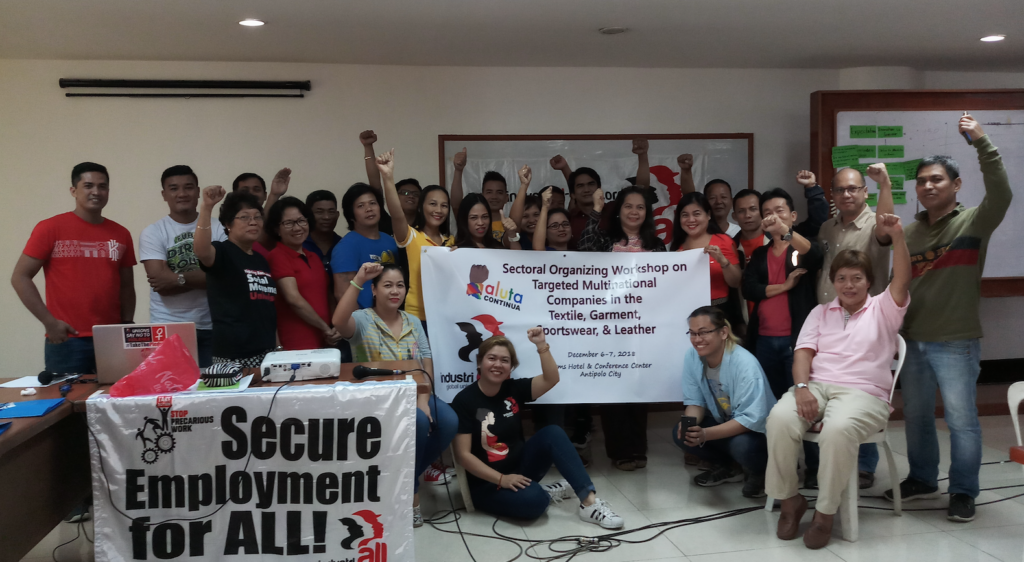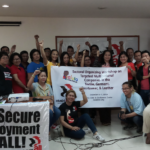Read this article in:
English
19 December, 2018Textile and garment workers in the Philippines have made a coordinated plan to engage multinational corporations to respect workers’ rights in the supply chain.
Twenty-eight participants from IndustriALL Global Union affiliate unions in the textile, garment, sportswear and leather sector, shared common experiences at a sectoral organizing workshop on 6-7 December 2018. The workshop aimed to strengthening cooperation among IndustriALL Philippine affiliates as part of an organizing drive in the sector.
With the positive economic environment driven by global trade, the country is poised to benefit from trade preferences, which will in turn provide employment opportunities particularly for the workers in the textile and garment sector. The government is also using policies to encourage investors to set up business in the Philippines such as tax holidays and relaxed labour regulation. The incentives are posing a challenge to workers in the sector, who are also demanding that government policies also promote decent and secure jobs.
Laudicia Casana, chair of IndustriALL affiliate, Trade Federation 2 – Kilos Damit, stressed that “multinational clothing brands and retailers who source their products in the country must conduct due diligence to make sure that their suppliers conform to labour and social standards”.
“What is happening now is the opposite as it seems that factories are downgrading on the terms and conditions of work including outright violation of workers’ rights. Factory closures and illegal termination are rampant whenever workers exercise their right to organize unions,” Casana added.
The unions resolved that in order to address these pressing issues a coordinated campaign needs to be carried out at different levels of engagement. Utmost priority will be on organizing and increasing membership base in the textile and garment sector. Second is testing to see whether contractors and subcontractors benefitting from trade preferences on condition that workers’ rights are being respected are actually doing so. Thirdly, the unions will launch education and awareness campaigns for workers.




